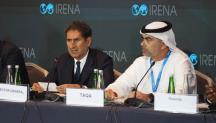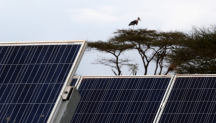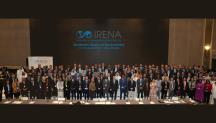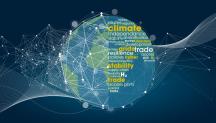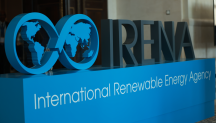

"Race to Zero" Energy Day Concludes with Call to Act on Energy Transition
Newsletter
Transforming the energy system is central to global climate action. With governments around the world taking drastic action and injecting trillions of public monies into economies to stimulate a COVID-19 recovery, non-state actors of the global energy community today sent a strong call for policy-makers to make a sharp turn towards a climate-safe future by prioritising the energy transition globally.
Opening the IRENA-hosted ‘Race to Zero Energy Dialogues’, IRENA’s Director-General Francesco La Camera emphasized that it is time to ‘walk the talk’: “This means fully aligning the recovery with the 1.5-degree pathway and a holistic policy approach for a just transition. And above all, global solidarity to advance a ‘global green deal’ that leaves nobody behind.”
To amplify climate action in 2020 and build momentum around the shift to a decarbonised economy, Champions for Global Climate Action convened the series of ‘Race to Zero Dialogues’.
Ambitious #climateaction can not only put us on track to achieving a sustainable and safe climate future, but can also create millions of jobs and drive a #greenrecovery, explains High-level champions @gmunozabogabir & @topnigel. #RaceToZero pic.twitter.com/dvnSTf20LI
— IRENA (@IRENA) November 16, 2020
Urgent action to create linkages in the energy sector to others, must be taken now to ensure we are on track for a 1.5°C future by 2040.
— IRENA (@IRENA) November 16, 2020
UK @COP26 Envoy @JohnMurton moderates a discussion on holistic policy approaches to climate-safe energy development. #RaceToZero pic.twitter.com/PL8AtquS0p
Dialogues aim to enable collaboration between governments and non-state actors from cities, regions, businesses and investors and chart how entire sectors are already rapidly transitioning to a zero-carbon future, as defined in the UN’s Climate Action Pathways. As such Dialogues will set the stage for the Anniversary of the Paris Agreement on 12 December and pave the way to ‘Race to Zero’ towards COP26 in 2021.
"As host of @COP26, we want to accelerate clean tech development so that every country can achieve a #netzero target by 2050."—UK Minister for #ClimateChange and Corporate Responsibility @LordCallanan #RaceToZero pic.twitter.com/8AIItCaC52
— IRENA (@IRENA) November 16, 2020
Today’s ‘Race to Zero Dialogues on Energy’ convened leaders from the energy transition covering policy-makers, business investors and the civil society in two sessions organised by IRENA, namely on the role of clean energy in COVID recovery and green hydrogen.
Building on the partnership with IRENA under the MOU signed in September, the Forum is pleased to announce our joint work to increase public-private collaboration for green hydrogen. @IRENA @wef @Davos #RaceToZero #greenhydrogen #hydrogen #EnergyTransition pic.twitter.com/eZejIJzvse
— WEF Energy (@wefenergy) November 16, 2020
"The momentum for green hydrogen is there but we have to address the competitive cap. We see great support from governments around the world to push the supply and demand and trigger necessary investments", said François-Xavier Olivieri representing the Hydrogen Council.
Speakers widely showcased energy transition solutions and how they can be scaled up and replicated to meet global climate goals.
